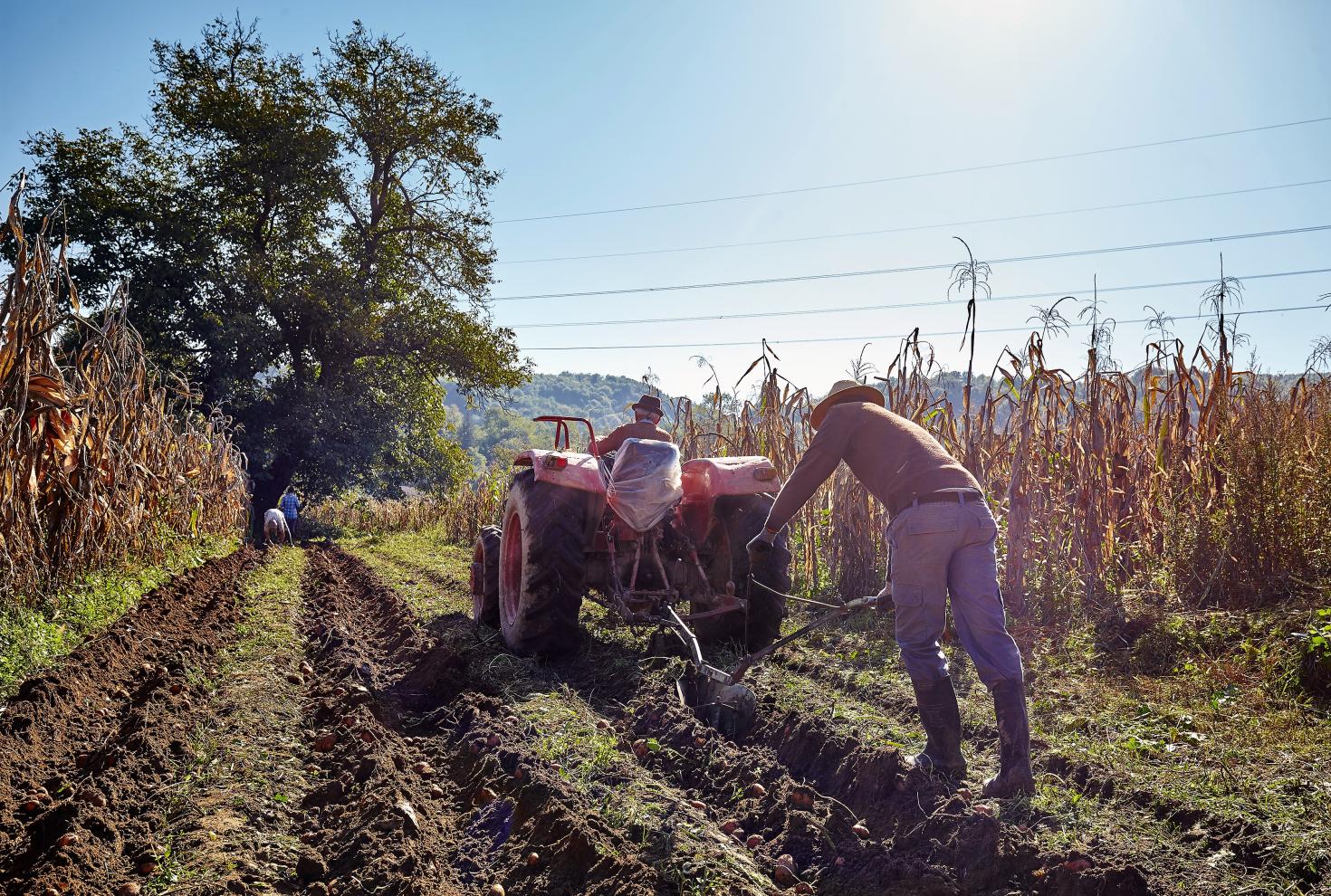This comes in the form of a report prepared for the recently created Global Center on Adaptation (GCA), to which IICA was a co-contributor.

San José, Costa Rica, 29 October 2018 (IICA). World agriculture stands to benefit from a new instrument that defines the roadmap to accelerate climate change adaptation, and in so doing to meet its objective of feeding an ever increasing population, even amidst extreme climate conditions.
It comes in the form of a report, entitled “Feeding the World in a Changing Climate: an Adaptation Roadmap For Agriculture”, which was prepared by the CGIAR Research Program on Climate Change, Agriculture and Food Security (CCAFS) for the Global Center on Adaptation (GCA), and for which the Inter-American Institute for Cooperation on Agriculture (IICA) was a co-author.
The GCA was recently launched in The Hague, with the support and leadership of influential figures, such as former United Nations (U.N.) Secretary General Ban Ki-moon, business magnate Bill Gates and World Bank Chief Executive Officer Kristalina Georgieva, with a view to overcoming the obstacles that hinder climate change adaptation and accelerating the necessary social and corporate adjustment.
IICA’s principal specialist on resilience, Laura Meza was one of the co-authors. The report suggests that climate change adaptation in agriculture is contingent on increased investment to modernize agricultural systems, particularly for small farmers, who face serious productivity gaps.
The document also prescribes the expansion of digital and climate services to promote the use of efficient tools and technologies that have been tested by producers; the use of public resources to eliminate risk and to provide incentives for private sector involvement in climate actions; capacity development for farmers; the empowerment of rural women and young people; and more policies to create an environment that is conducive to climate action in countries.
Meza contends that, “Adaptation of the food production system in the Americas is a matter of urgency, not only because of the sector’s extreme vulnerability to climate change, but also because this will determine the region’s ability to maintain and increase the amount of food it supplies to the world. Fortunately, we are not starting from scratch. This document contains several successful and proven examples that can provide a starting point for effective transformation in rural areas”.
The IICA specialist went on to explain that the report targets governments, the private sector, civil society, inter-governmental organizations and research institutes, to help them direct their agricultural adaptation efforts. It is also in keeping with the Institute’s commitment to build resilience and scale-up the actions required for agricultural adaptation in the hemisphere.
In closing, the Institute’s Principal Officer for Resilience remarked that, “the Intergovernmental Panel on Climate Change (IPCC), in its most recent report, stressed that communities that depend on agriculture are disproportionally affected by climate change-associated impacts and risks. It is particularly disturbing that we, as a society, are not adapting in the manner and to the required extent to be able to tackle the challenges of climate change, and that is why this document is so important”.
“Feeding the World in a Changing Climate: an Adaptation Roadmap For Agriculture” is only available in English at this time.
More information:
Laura Meza, Principal Officer for Resilience, IICA.
https://blog.ciat.cgiar.org/es











